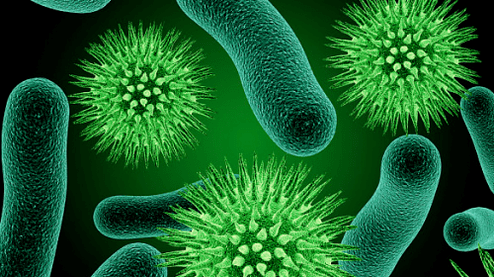One of the types of worms that parasitize the human body is a worm, or in other words, a worm. These parasites have an amazing ability to survive and reproduce extremely quickly in various internal organs: liver and kidneys, brain and muscle tissue, eyes and intestines.

To our great regret, many of us just underestimated the danger and severity of these parasites, and the diseases caused by worms are found in different parts of the earth. This is why topics like worms: the symptoms of adult patients are very important to everyone.
Worms: causes and types
Many of us believe that in order not to be infected with worms, it is enough to wash our hands and follow general hygiene rules. but it is not the truth. Nearly 70% of the world's population are carriers of worms.
If you are not a doctor specializing in this field of medicine, it is difficult to detect the presence of worms in adults. This is because the disease actually has no obvious symptoms and signs.
There are several of the most common signs that may indicate the presence of parasites in the body:
- A person feels tired very quickly, and he often shows aggression and anger for no apparent reason. Patients are often severely depressed. These people have poor sleep or insomnia.
- In the patient's abdomen, pain and discomfort and rumbling, bloating and flatulence are often manifested. Sick people lose appetite and lose weight quickly. Or vice versa-the patient has too much appetite to get enough food. Constipation or diarrhea are common.
- Because the worm feeds on the blood of its "host", patients often experience symptoms such as anemia or anemia.
- Worm carriers often have various rashes on the skin or mucous membrane surface, as well as various allergic reactions.
If a person shows at least one of these signs, this should alert him and urgently call the medical institution.
The main way for worms to enter the human body is the gastrointestinal tract, as well as food or drink. Parasitologists distinguish the following main parasite infestations:
- Worm disease. Parasites enter the patient's body through beverages or soil. This may be direct contact with animals or ingestion of food or eggs of flies on fruits and vegetables.
- get in touch with. This parasite infection is probably through contact with people who have already been infected.
- Biological worm disease. In this case, parasites can enter the human body by eating undercooked animals, poultry or fish.
- Insect bites. Mosquitoes are one of the most common carriers of worms. While biting a sick and healthy person, mosquitoes will infect a second person with worms.
In summary, worm infections can be caused in many ways. But one of the most common and dangerous methods is the fecal mouth (with food and water).
The human body is a fairly complex mechanism, and there are certain barriers to prevent worms from entering and developing.
One of the first obstacles is saliva, which contains many different enzymes. It is these enzymes that have the unique ability to adversely affect most types of worms.
If the worms survive, they will penetrate the stomach. But even here, what awaits them are quite unpleasant surprises-hydrochloric acid and various enzymes, which have all the necessary properties to destroy a large number of parasites. In addition, the body's natural intestinal immunity should not be underestimated.

Intestinal microbiota, enzymes, blood cells-these are tireless warriors fighting worms. It is these natural barriers designed to protect our bodies from parasites. However, once this armor becomes weak, our body will begin to be actively attacked by various worms.
In order to know exactly how to deal with parasites, you need to understand their types and characteristics. The classification of worms is mainly divided into three categories:
- roundworms. Representatives of this group are also called nematodes, and there are more than 24, 000 species of parasites. A distinctive feature of roundworms is their shape, which is round in cross section. They have an elongated body with pointed ends. The most common species of this parasite are roundworms, whipworms, pinworms and trichinella.
- tapeworm. One of the most notable features of this parasite's life cycle is that they have an intermediate "host", which is an animal or fish. Eating uncooked or raw animal or fish meat has an almost 100% chance of contracting tapeworms. The most common representatives of this species are broad tapeworms, bovine tapeworms, and dwarf tapeworms.
- Sucker. The representative of this group has a flat leaf-shaped body with a length of 1. 5-2 m. There are two suction cups at one end of the tower, and the parasites are attached to the substrate with the aid of the suction cups. Generally, flukes affect the intestines, muscle tissue or the human nervous system.
Diagnosing human worms
It is difficult to determine whether worms are present in adults. This is because the symptoms of helminthiasis (headache, loss of appetite, fever, gastrointestinal dysfunction, etc. ) are very similar to the symptoms of other diseases.
In addition, the symptoms of the presence of worms in patients are usually common allergies. There is often a high probability that parasitologists suspect that the patient has parasites, laboratory tests cannot confirm this, and the patient has not been treated for a long time due to dysbacteriosis.
Worms: Adult Symptoms, Treatment-This problem has plagued our society for more than 100 years. One of the most common and commonly used methods to determine adult helminthiasis is to analyze the worm eggs in the stool.
Unfortunately, the percentage of effectiveness of this method is only 20%. In the remaining 80% of patients, it is impossible to diagnose the presence of worms in the body. The reason for the low efficiency of this analysis is that experts did not take into account the fact that the worms lay eggs. For example, consider roundworms. They lay eggs mainly in the morning (4-5 o'clock). This means that the feces analyzed at night will not show the presence of worm eggs.
Parasitologists usually use a method, such as enterobiasis. The essence of this technique is to scrape from the patient's anal canal. Unfortunately, this method is not very effective.
The patient's blood test also did not give a high rate of confirming the presence of worms. In both cases, the reason is the same-analysis time and cyst excretion time are inconsistent.
Some experts use specially designed tests to answer questions that can determine the development of helminthiasis in approximately 50% of patients. The following are the questions of this test:
- Do you feel itchy anus?
- Whether there is a rash on the skin.
- Will you feel sick in the morning?
- Do you suffer from sleep disorders.
- Is there bitterness in your mouth?
- Are your lymph nodes swollen?
- Have you noticed pain in the muscle area?
If the patient answered affirmatively to the 7 questions, this may indicate the presence of worms in the adult.
Modern medicine recommends the use of ultraviolet skin scanners and other methods for detection. Unfortunately, this method of diagnosing helminthiasis is not commonly used. This is because the equipment (UV skin scanner) to implement it is very expensive and not every medical institution can afford it.
Using methods such as histological coordination program, it is not only possible to determine whether there are worm cysts in human feces, but also to determine the presence of body parts. The essence of this method is to examine several layers of feces under an electron microscope. This method allows parasitologists to obtain the most accurate results.
In order to determine whether there are worms in the patient’s lungs, the doctor will first prescribe X-rays and perform laboratory tests on the patient’s sputum.
By using computed tomography or ultrasound, parasitologists can easily determine whether a patient has parasites in organs such as the liver or brain.
A complete blood count or immunological test will help determine the presence of parasites in the patient’s blood. In order to determine whether a patient has helminthiasis, experts use a variety of methods.
Unfortunately, none of them give the most reliable results. In this regard, in some cases, the treatment process will not produce positive results, but will only aggravate the patient’s clinical and general conditions.
The most effective medicine to treat different types of worms
Adults, symptoms and treatment-these two concepts are closely related and have a direct relationship.
The process of treating helminthiasis is a very difficult task. For example, certain diseases caused by worms are similar to cancers such as alveolar disease. Other types of diseases caused by tapeworms or hydatid can only be treated with surgery.
The third disease cannot be treated with pills. The correct choice of treatment depends on the correctness of the type of parasite that has been established in the adult.
The complication of treatment is that the anthelmintic kills only the adult worms, while the larvae and eggs remain in the human body and continue to parasitize there.
All drugs used to eliminate worms can be conditionally subdivided into the following groups:
- Refers to including mebendazole. This group of drugs is most commonly used to treat ascariasis, tapeworm disease, hydatid disease, alveolar disease, capillary coccidiosis, mixed helminthiasis and other diseases.
- A formulation containing diethylaminomarazine. Basically, these funds have achieved excellent results in the treatment of diseases that affect the human lymphatic system (fibers located under the skin and eye tissues).
- This means that its active substance is levamisole. Such methods are usually used to treat non-cotor disease, pinworm disease, aspergillosis, and trichomycosis.
- Including albendazole formulations. Mainly used to treat cysticercosis and ascariasis.
In any case, you should not forget that it is not recommended to self-medicate when helminthiasis is detected. This may lead to complications and worsening of the clinical symptoms of the disease.
The main reason for this is that most anti-helminth drugs are toxic and require specially designed dosing regimens.
In order to obtain active treatment, it is necessary to contact a medical expert who specializes in parasitology. In addition, the prerequisite for treatment is to strictly follow the doctor's recommendations.
Human parasites such as worms are extremely dangerous to human health. In order to make the treatment process most effective, parasitologists are making every effort to determine as accurately as possible which species the parasites that colonize the patient's body.
In order to eliminate worms, doctors use a considerable list of drugs. However, self-medication is never recommended. For the treatment of helminthiasis, a separate treatment plan, dosage and course of treatment are being developed. It is recommended to strictly follow the instructions of the parasitologist.



























